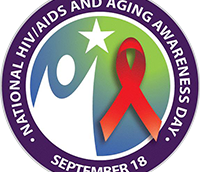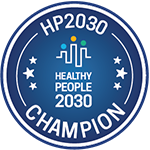
Contact our PIO directly to share health news.

770.339.4260
HIV AIDS Aging Day

Information Contributed by AIDSinfo
September 18 is National HIV/AIDS and Aging Awareness Day—a day to highlight the challenges of HIV prevention, testing, treatment, and care that older Americans face. Although HIV risk factors are similar for all adults, older adults may be less aware of these factors and the importance of testing to detect HIV in its earliest stages. CDC reports that in 2014, 40% of people aged 55 and older were diagnosed with AIDS at the time of HIV diagnosis. Thanks to treatment with antiretroviral therapy (ART), people with HIV are living longer.
According to the Centers for Disease Control and Prevention (CDC), in 2014, an estimated 45% of Americans living with diagnosed HIV were aged 50 and older.
Nonetheless, CDC recommends that everyone 13 to 64 years old get tested for HIV at least once and that people at high risk of infection get tested more often. Your health care provider may recommend HIV testing if you are over 64 and at risk for HIV infection.
Age-related factors can complicate HIV treatment in older adults.
- Decreased liver and kidney functions with age. This decline may make it harder for the body to process HIV medicines and increase the risk of side effects.
- Older adults with HIV may have other conditions, like diabetes and heart disease, that can make it more difficult to manage HIV infection. In addition, HIV may affect the aging process and increase the risk of age-related conditions such as dementia, bone loss, and some cancers. Taking HIV medicines and medicines for other conditions at the same time may increase the risk of drug-drug interactions and side effects.
- The immune system may not recover as well or as quickly in older adults taking HIV medicines as it does in younger people.
Despite these age-related factors, some studies have shown that older adults are more adherent to their HIV medicine regimens—meaning they take their HIV medicines every day and exactly as prescribed—than younger adults.
Click on the links below to find National HIV/AIDS and Aging Awareness Day resources and information about HIV and aging.
Contact our PIO directly to share health news.



